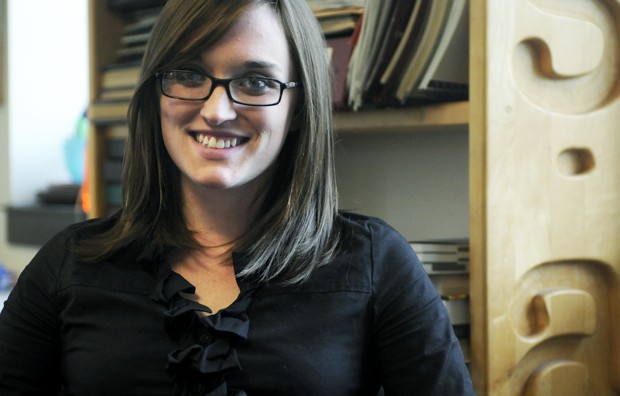When the University Of Minnesota Board of Regents meets each month to consider policies and issues affecting the University, seven students take two days off from classes to represent the student voice. While they are not allowed to vote, Student Representatives to the Board of Regents are encouraged to offer insight and ask questions during committee meetings, said Ann Cieslak, executive director in the Office of the Board of Regents . Besides preparing for and attending the monthly Regents meetings, student representatives also play key roles in their campusesâÄô student associations. They are required to participate as members of the campus governing body; this solidifies their role as the advocates for the student body, representatives say. The program started in 1973. The University of Rochester is the only University of Minnesota campus not represented on the board because it is still too small, Cieslak said. Each of the seven student representatives said they think their presence in committee meetings keeps Regents accountable to students, the largest group their decisions affect. Jennifer McCabe , Chair Duluth Junior, Accounting and Human Resources Audit Committee, Facilities Committee Jennifer McCabe, chairwoman of the student representatives to the Board of Regents, acts as the official voice to the Board. When the students need to formally address the regents, she speaks on their behalf or has the authority to select a student representative more familiar with the subject. McCabe is serving her second year as student representative to the board. She said she was introduced to the position as a first-year and decided to apply for it her sophomore year because she thinks âÄúitâÄôs a great way for the board to have [student] faces there, to realize who theyâÄôre affecting.âÄù Aditya Srinath , Vice Chair Twin Cities Senior, Mechanical Engineering Facilities Committee, Finance and Operations Committee Aditya Srinath said he was drawn to the student representative to the Board of Regents position because it has a service and leadership component that allows him to advocate for the entire undergraduate student body. As the ranking representative on the Twin Cities campus, Srinath serves on the Minnesota Student AssociationâÄôs executive board, comprised of nine officers with voting power. Srinath said there are a number of issues students care about. He said he understands the responsibility he has as the intermediary between regents and MSA. Christina Brakken-Thal Twin Cities, Graduate and Professional Student Association (GAPSA) Graduate student, M.D./Ph.D. Educational Planning and Policy Committee, Audit Committee As the only graduate and professional student representative to the Board of Regents, Christina Brakken-Thal said her role is different from the other student representatives because she stands for such a large and diverse constituency. The presence of a graduate student representative matters because graduate and professional students are not always remembered when student issues are discussed, Brakken-Thal said. She said her status as a graduate student gives her knowledge of the different programs, which helps her act as a liaison between the programs and board. Lauren Snively Crookston Sophomore, Early Childhood Education Faculty, Staff and Student Affairs Committee Before joining, Lauren Snively said she didnâÄôt know students had the opportunity to be so involved in the Board of Regents, the governing body of the University of Minnesota system. Even though she represents one of the smaller campuses in the University system, Snively said all the student representatives have an equal voice. Because the committee she serves on deals specifically with student affairs, Snively said it is pivotal that the student perspective is represented at meetings. âÄúI donâÄôt think they would be able to make decisions without input from students,âÄù she said. Megan Hines Twin Cities Senior, Environmental Sciences Policy and Management Educational Planning and Policy Committee Megan Hines has been very involved in student life since she started at the University and has become increasingly interested in the âÄúbig pictureâÄù that is the University decision-making process. When discussing issues as a full board, regents often reiterate comments made by student representatives in committee. She said this shows the importance of their contribution. Matt Privratsky Morris Junior, Political Science Finance and Operations Committee Matt Privratsky thought holding the student representative position for the Morris campus would give him an opportunity to know whatâÄôs going on in the entire University of Minnesota system, he said. Merging the Morris student perspective with a broader sense of the system offers a much needed balance. âÄúA lot of issues might not directly affect our campus, so I have to change my perspective,âÄù Privratsky said. At the same time, he said he has a responsibility to be a strong voice for Morris students. Sarah Shook Twin Cities Senior, Political Science Faculty, Staff and Student Affairs Committee Sarah Shook said being involved on campus has made her more aware of big issues when they arise. In her first year as a student representative to the Board of Regents, she is in the position to contribute to the discussion leading up to the enactment of any new policies. Her role on the Faculty, Staff and Student Affairs Committee is âÄúincredibly important because everything we discuss pertains to student life and the quality of the student experience,âÄù she said. In order to accurately represent student concerns, representatives look for feedback. âÄúWeâÄôre always looking for student input, if students have any concerns, e-mail them,âÄù Shook said. âÄúWeâÄôd love to bring up any issues they have to the Board of Regents.âÄù

Image by Chelsey Rosetter
Megan Hines
Reps bring student voice to regents
Student representatives from each campus convey concerns and give advice as regents consider policies.
Published September 23, 2009
0

